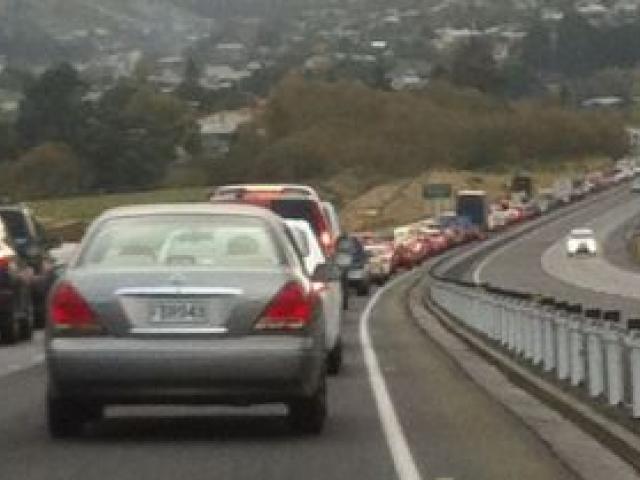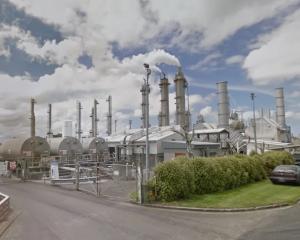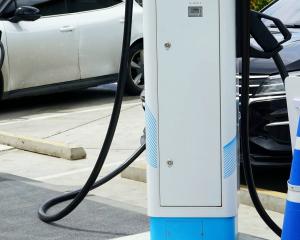
Jiu-jitsu is the answer, Climate Minister James Shaw says.
That would be the Brazilian combat sport that places particular emphasis on grappling on the ground.
However, the ground-wrestling is not the bit that Shaw is concerned with. No, what the urbane and not particularly big Mr Shaw likes is the idea that in jiu-jitsu a smaller, weaker fighter can overcome the odds.
And the opponent Shaw has in his sights is sizeable.
‘‘Global capitalism is a pain in the neck,’’ he told an audience at the Lakes District’s One Summit last month.
Come at it head on and you’re likely to lose.
‘‘I think that what we need to do is a wee bit of jiu-jitsu,’’ he said. ‘‘And if you know anything about jiu-jitsu, what it says is that a small weedy person, like me, can take an enormous amount of incoming energy and with the flick of the wrist twist it and sit it on its arse. And that’s what we need to do to global capitalism.’’
In practice, the aim is to guide capital to see its own best interests lie in shifting the world to a more sustainable footing.
Among the ways the Government is looking to do that is with a climate-related financial disclosures regime. Under the proposed regime, businesses will have to disclose if they have shareholders’ money tied up in drilling for oil that can never be burned, or in an airport exposed to sea-level-rise flood risk.
‘‘The idea here is that if you start to report on this, not as a matter of corporate social responsibility but of shareholder protection, then very quickly capital works out where to go and it is not into the brown economy it is towards the green economy,’’ Shaw says.
Measures such as this can build a new consensus.
‘‘That is what we have to do if we are going to be able to work out how to go through the greatest transition, the most rapid transition in our economy and in our society, at least since the 1980s, but without doing the kinds of things to each other that we did in the 1980s.’’
Government’s not off the hook either. Shaw recently announced an all-of-government measure, whereby major projects will have to pass a climate change test.
And this week Finance Minister Grant Robertson announced one of the five priorities for the 2020 Wellbeing Budget — and the first listed - is ‘‘Just Transition: Supporting New Zealanders in the transition to a climate-resilient, sustainable, and low-emissions economy’’.
Specifically, the Minister announced ‘‘$200 million for public estate decarbonisation’’.
‘‘We are looking to spend around $200 million removing coal-fired boilers from schools and hospitals and corrections facilities,’’ Robertson told RNZ.
They are further pieces of an increasingly co-ordinated effort to meet some emissions reduction targets and address one or two other issues along the way.
The 2020s look like being the decade when it all happens.
Shaw was in Madrid this week at the COP25 climate change talks, tidying up the detail of the Paris Agreement so countries can head to next year’s COP26 talks in Glasgow with one thing in mind: ramping up their emission-cutting commitments in order to limit planetary heating to 1.5degC. And there’s a lot of ramping to do: commitments to date put the world on a course for something closer to a calamitous 3degC.
We all get to be involved. Climate change involves both the small personal choices: dinner tonight, high carbon or low. And the big ones, in board rooms and government offices, about motorways or rail, about investments in oil or wind.

‘‘It has to become the central decision-making criteria whenever we do anything,’’ the Centre for Sustainability director says. ‘‘Whether it is deciding on something huge, like whether we do a motorway, or something tiny like what are we going to have for dinner tonight, the carbon imperative has to be there through everything.’’
That is happening, she says. There has been a sea change in people’s understanding of the need to change, evidenced by the near unanimous support in Parliament for the Climate Change [Response (Zero Carbon)] Amendment Act 2019, which passed with only one vote against.
Then there’s the emergence of the business grouping the Climate Leaders Coalition, the votes to declare a climate emergency at local authority level, and the outpouring of concern from citizens of all ages, she says.
‘‘There is what I would call, as a social scientist, a normative shift. A shift in the way we are talking about climate change and thinking about climate change and also realising its impacts are starting to become real as well.
‘‘I was at a climate change and business conference recently in Auckland and the kinds of things businesses are saying now are much less about window dressing and much more about fundamental changes to business models and how they do things than they ever have been.’’
As we move into 2020, we have our toes on the starting line, she says. Now we need to sprint.
The Zero Carbon Act was hailed at its passing as a watershed moment in this country’s efforts to live up to our Paris Agreement commitments.
But it is just one piece of a puzzle that has been taking shape in recent years, providing a platform for a decisive shift.

Add to that measures to cut waste at a national level under the Waste Minimisation Act, changes to the Emissions Trading Scheme, the climate-related financial disclosures regime, and an NPS on freshwater and indigenous biodiversity, and there’s a tsunami about to break behind pro-environmental efforts.
‘‘What it illustrates is that going to zero carbon is a right across the economy operation and it requires concerted action in every sector really,’’ Prof Chapman, of Victoria University of Wellington’s environmental studies department, says.
Take the Government Policy Statement on Land Transport: ‘‘Which sounds boring but is actually incredibly important, because it sets the funding direction and the funding quotas for land transport investment for the next 10 years.’’
The statutory document has shifted millions of dollars of funding out of highway construction and into active travel and public transport.
‘‘That will have an effect,’’ he says.
‘‘My general point is, overall there have been quite a lot of actions since the change of government.
‘‘They are starting to build up into quite a bow-wave of activity and change.’’
Grant Robertson’s Budget 2020 announcements this week underlined that, with rail to get a share of $6.8 billion of new transport spending.
Rail, cycling and walking need to be supported as part of the land transport strategy alongside roads, he said.
Prof Chapman says the proposed NPS on urban development has the potential to build on that, hoisting environmental considerations further up the priority list when city planners are making decisions. That’s likely to mean consideration of the contribution urban development and urban form can make to cutting transport emissions — which has been missing up to now - will ramp up, he says.
‘‘The big gains come in redeveloping our cities, as much as we can, over the next 30 years, so we have a lot of people doing a lot fewer trips,’’ Prof Chapman says.

The council is part of the international climate change action agreement the Global Covenant of Mayors for Climate and Energy, is targeting 2030 to go net-carbon zero and has budgeted an extra $1 million over the next two years to support that work, among other initiatives.
‘‘Now, the council as an organisation will run all of our decisions through that lens and what the implications are for the city becoming net zero by 2030,’’ Hawkins says.
While the ratepayers of Dunedin make decisions to cut their households’ footprints, the council can contribute systemic change that makes it easier, he says.
In terms of transport, that might mean making public transport more affordable and improving opportunities for active travel, so everyone gets to access the city’s amenities - contributing to better connected, more resilient communities.
Part of the work will be developing urban forms to support it.
As far as that goes, the direction of the NPS on urban development appears to be consistent with Dunedin’s second-generation district plan (2GP); which allows for medium density zones, looks to connect development with public transport, amenity spaces and urban centres.
The mayor is clear about the importance of getting these decisions right, now.
‘‘The decisions that this council makes over this three-year period will be critical to achieving where we need to get to and to meet international commitments.’’
Where we need to get to is those 2030 goals; the New Zealand Government’s Paris Agreement commitment and Dunedin City’s net-zero target.
Local authorities across the region are now piling into this work, whether it’s the Queenstown Lakes District Council’s proposed Climate Action Plan, Environment Southland’s newly published Regional Climate Change Impact Assessment, Otago Regional Council’s risk assessment work, Central Otago District Council auditing its own carbon footprint or Waitaki District Council’s work on climate change adaptation.
Meanwhile, at a national level, Prof Chapman says the Climate Change Commission’s work under the Zero Carbon Act will be influential in guiding our progress.
It is due to make its first recommendations to the Government in 2021, suggesting a carbon budget through to 2025 and how to meet it.
‘‘It is going to have to look right across the economy and say, ‘Just how fast do we go in this area of housing, and how fast do we go in this area of transport? Do we need to go faster?’. And almost invariably the answer will be, ‘yes we do’.’’

From 2020, efforts to cut emissions move up a gear. The Zero Carbon Act passed last month will combine with government and national policy statements, refinements to the Emissions Trading Scheme and new efficiency standards for cars to pile on the incentives to change.
Some of the national initiatives will help drive low-emission behaviour at the local level, while local authorities themselves take their own action. All the while, trees will be going in, farms will be working towards smaller-footprint practices and the newly established Green Investment Fund will be supporting development consistent with the Paris Agreement greenhouse gas targets. Here is just some of what is planned.
2020
• First climate change risk assessment under the Zero Carbon Act.
• National Policy Statement on Urban Development takes effect.
• Public consultation starts on Dunedin City Council’s Waste Futures project.
• New Zealand Government updates its Paris Agreement target of 30% below 2005 emissions to something consistent with limiting planetary heating to 1.5degC, at the COP26 talks in Glasgow.
• University of Otago greenhouse gas emissions reduced by 33%.
• Waitaki District Council organisation-wide greenhouse gas emissions report goes to council.
• Waitaki District Council proposed district plan includes climate change adaptation around natural hazards and promotes low-emission urban environments.
• Queenstown Lakes District Council’s first Climate Action Plan includes a district-wide emissions reduction plan.
• Central Otago District Council has its carbon emissions audited.
• Central Otago District Council investigates options for energy reductions at high-carbon sites.
• Wellbeing Budget prioritises a just transition to a low-carbon economy.
• Otago Regional Council climate change risk assessment report finalised.
2021
• Paris Agreement carbon budget of 601 Mt CO2 for 2021-2030 period begins.
• Climate Change Commission recommends its first five-year carbon budget.
• Regulated product stewardship schemes introduced.
• All Dunedin streetlights converted to LEDs.
• Phase down of free industrial allocations under the ETS begins.
• Regulations introduced around climate-related financial disclosures.
• Clean car discount and clean car standards introduced.
• Government target of 64,000 electric vehicles on our roads by the year’s end.
• New National Land Transport Programme.
• Queenstown Lakes District Council produces its first annual climate change action progress report.
• University of Otago reduces waste to landfill by 50%.
• Central Otago District Council long term plan funds work on carbon reduction initiatives.
• Central Otago District Council long term plan funds waste diversion initiatives.
• Queenstown Lakes District Council produces first annual climate change action plan progress report.
• Clutha District Council includes climate-specific plans in its long term plan.
2022
• Climate Change Commission’s first carbon budget takes effect, through to 2025.
• George St pedestrianisation project complete.
• Wanaka becomes a single-use-cup free town.
• Cycleway to Port Chalmers complete.
• Queenstown Lakes District Council develops a district-wide emissions reduction programme.
2023
• New national landfill levy rates begin.
2025
• Regional councils must give effect to the National Policy Statement for Freshwater Management.
• Plan to reduce agricultural emissions implemented.
• Ngai Tahu achieves its short/medium term climate change strategy goals.
2026
• All new government fleet vehicles to be electric.
• Climate Change Commission recommends its second five-year carbon budget, through to 2030.
2028
• Dunedin woodchip-fuelled district heating scheme energy centre up and running.
• One billion trees planted.
• National Policy Statement for Indigenous Biodiversity gazetted.
2030
• All University of Otago energy needs from renewables.
• Dunedin becomes a net-carbon zero city.
• New Zealand hits its ambitious updated Paris Agreement target.
Comments
In 1987 I remember looking at this and thinking we had 12 years to act. Nothing that I have seen since changes my mind. Now with the Permafrost melting and releasing its Greenhouse gases into the atmosphere, and with the methane escaping from the Fracking operations globally, there is no way we can get ahead of the heating. Even switching off all the motors, all the lights, all the air conditioners, this horse hasn't just bolted from the stable, it's skipped the country.
It makes me sad to say it, but I, and others, told you so. Science and technology have destroyed the planet, anyone who thinks these educated idiots will somehow save us deserves the reality that we now face. Please stop acting surprised, you just make humans look even sillier than we do now.
‘‘Global capitalism is a pain in the neck,’’
Wrong attitude.
Socialism has always been the killer of human development and brighter futures for our children. Socialism always leads to repressive laws inflected on the masses by moralising elites that manipulate the population by gaslighting reality with their ideology. Some truth here, a big lie there, is how it is done.
The populations of the UK the US and Australia are finally waking up to what Woke lefties are dumping on their societies. The Orwellian manipulation of language, where regressive has been replaced with progressive, less has been replaced by sustainable, and anti-development has been replaced by pro-environment, are the hallmark of their fear mongering, censorship controlled propaganda.
I look forward to when NZ does the same, for the sake of the generations to come.
Self inflicted poverty does not make anyone moral. It just creates more poverty.
Oh deary me, the Greedisgoodites have spoken. So long as there is a profit in it the Capitalists do not care who or what is destroyed. Bhopal is a grand example of the immorality of Capitalism, Bouganville is another, basically everywhere you look capitalists are destroying something to make a quick buck.
The right wing is all about profits and controlling the masses with repressive laws to stifle workers rights and environmental protection. We see in Australia, the USA, Brazil, and the USA, the New Nazis repressing the freedom of the media and destroying the environment. Do not be fooled, the alt-right is just another name for Nazi, individual freedom is not their thing, workers rights is not their thing, clean water and clean air is not their thing. AR-15's are what they like, slavery is what they like, profit before people. These new Nazis are no better than the old Nazis, whatever they call themselves.
We live in an age when electricity is emperor. Almost everything is dependant on it, yet leftist socialists have heart failure at the mention of coal, which is abundant in the world.
It should be obvious that generation of electricity by coal can and should be clean and non-polluting; it isn't as though we lack the know-how or filters, it just comes down to laziness and money.












